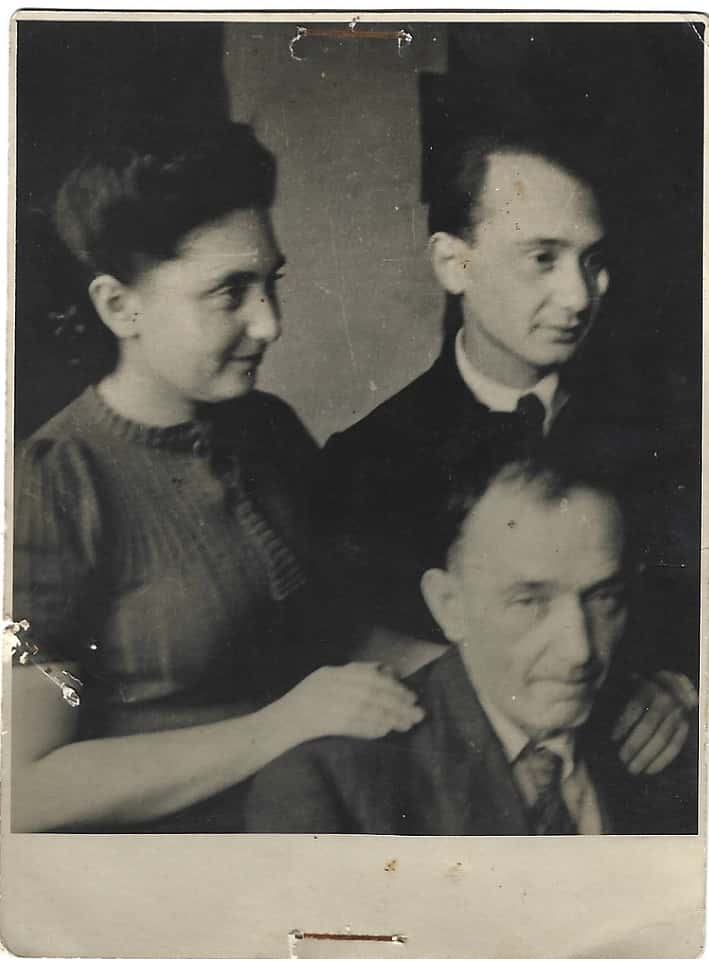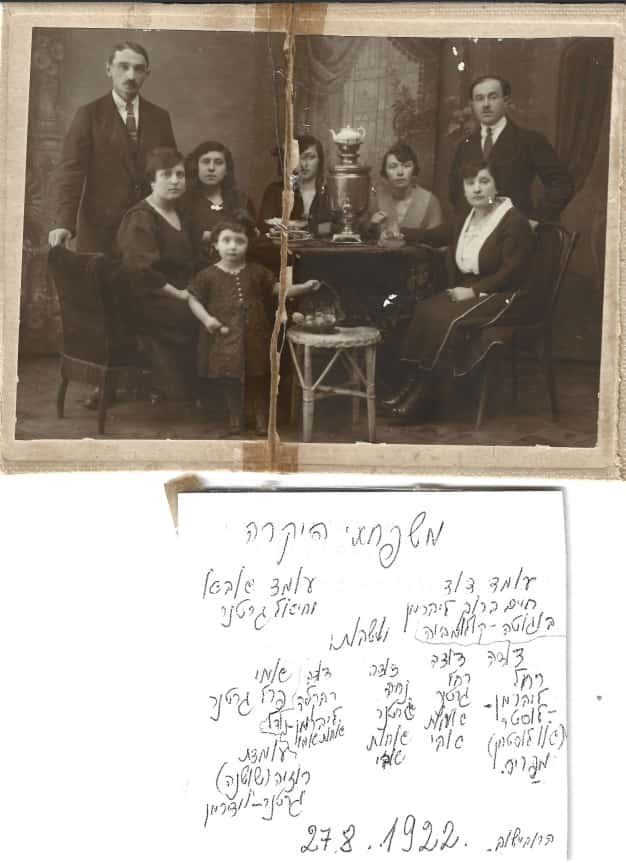Home » Viderman Shohana Chaya Rojka
My mother was born on December 31, 1918, in the town of Hrubieszów to her parents, Perel (née Liberman) and her father, Yechiel Gartner.
In Israel, my mother was called Shoshana, but in Poland, her acquaintances knew her as Rozhka. She had a younger brother named Avraham (Avak) Gartner.
My mother attended elementary school in Hrubieszów and the gymnasium that still exists in the city today. She loved playing and competing in checkers and kayaking with her friends on the Huczwa River, which flows through the town. My mother was a well-liked, sociable, and disciplined student.
The antisemitism that began before World War II affected Jewish rights and subjected them to discrimination.
I recall a story my mother told us during a visit to Hrubieszów, on a trip commemorating the unveiling of a monument there. She shared how she was punished specifically because she excelled in mathematics. They struck her hands with a ruler, made her stand in the corner, and forced her to stand with her hands behind her back.
As far as I know, my mother was part of the youth movement “Hahalutz.”
At around the age of 18, her mother fell ill with cancer and was sent to a sanatorium in Vienna, Austria, where her condition worsened. She passed away and was buried in the Jewish cemetery in Vienna. Left at home where her father, Yechiel, and her younger brother, Avak. Her father, who traded in haberdashery items, often had to leave home to support the family. He traveled by horse and wagon between towns and frequently had to be away for long periods.
With the rise of the Nazis in Germany in 1933, the general atmosphere became even more hostile, and hardships intensified. My mother learned that her family had relatives in another town, and with her resourcefulness, she decided to escape with her brother to those relatives. With no accessible means of transportation and the onset of winter, they had to travel a long distance on foot, crossing forests. The escape took them a long time.
With the German invasion in September 1939, the city was occupied by the Germans, but later, under the Molotov-Ribbentrop Pact, the Germans withdrew, and the city came under Soviet control for a short period.
Rumors of the advancing Germans reached the relatives with whom my mother and her brother were staying, and they used the Soviet retreat as an opportunity to flee eastward into Soviet-controlled territories, hoping to find refuge from Nazi occupation.
During their flight, by chance, in Hanukkah, my mother and her brother reunited with their father, and together they reached Siberia. It was their personal Hanukkah miracle, a story my mother told her children and grandchildren every year during Hanukkah.
In Siberia, my mother trained to become a lab nurse. She worked and cared for the sick. Her profession often saved her life, as it was critically needed during the war.
Unfortunately, like many Holocaust survivors, my mother spoke little about her childhood and youth.
In 1945, my mother, her father, and her brother Avak arrived at the Föhrenwald displaced persons camp in Germany. The camp operated in the American occupation zone. There, my mother met my father, Yitzhak Widerman, and her brother met his wife. Both couples married.
My mother continued her work as a nurse in the displaced persons camp clinic. Her brother Avak later immigrated with his wife and their daughter, who was born in the camp, to the United States. There, they had a son.
In March 1949, my parents immigrated to Israel, with my mother pregnant with me. Initially, they lived in Jaffa, and later, when I was four, they moved to the city of Givatayim.
My mother worked for many years at the Veterinary Institute in Beit Dagan and expanded her knowledge through veterinary studies. She researched foot-and-mouth disease in cattle and contributed to the development of a serum to treat the disease. She also worked on the early detection of Newcastle disease in poultry.
My parents mostly socialized with friends from Hrubieszów. They celebrated holidays together, loved dressing up, and my mother took pride in sewing creative costumes for both herself and me as a child. We celebrated family events, went on joint trips to convalescent homes, and, despite their hard work, they knew how to enjoy life as much as possible.
My father passed away at a young age, and my mother lived to the age of 84. After retiring, she devoted herself to her grandchildren and volunteered at the emergency center of the Givatayim Municipality, later receiving an honorary award for her contributions.
My mother, Shoshana, was a beloved and significant figure for me and my children, even to this day.

